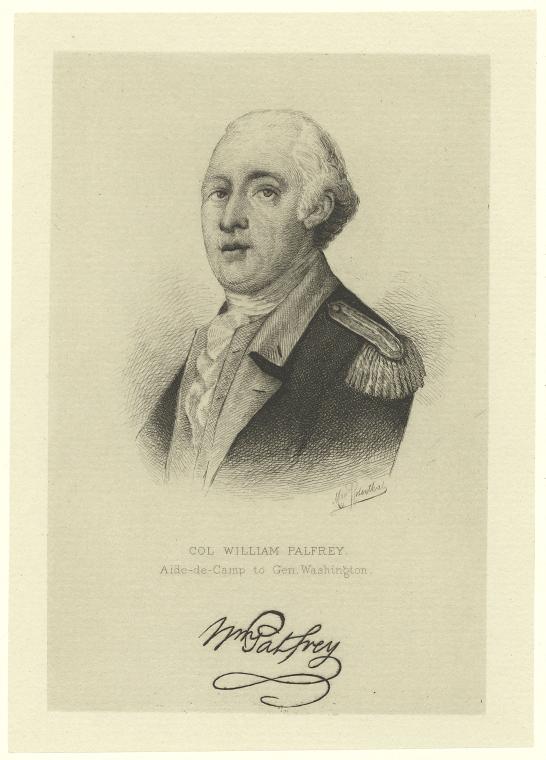William Palfrey at the Boston Massacre
William Palfrey (1741-1780, shown here) was an apprentice and business protégé of Nathaniel Wheelwright, one of Boston’s leading merchants in the early 1760s. Wheelwright’s personal notes circulated like currency in the Boston economy.
In January 1765, Wheelwright suddenly went bankrupt. Palfrey apparently lost his savings and ended up having to take a job as manager of John Hancock’s shop—a big comedown in a society that expected gentlemen not to work for anyone else.
Palfrey made his way back up the ladder, soon managing a lot of Hancock’s transatlantic trade and also much of the Boston Whigs’ correspondence with like-minded British politicians, most notably John Wilkes.
On 5 Mar 1770, Palfrey was writing a letter to Wilkes when he was distracted by a noise outside his house. It took eight days before Palfrey resumed writing the letter, explaining:
TOMORROW: Palfrey on the morning after.
In January 1765, Wheelwright suddenly went bankrupt. Palfrey apparently lost his savings and ended up having to take a job as manager of John Hancock’s shop—a big comedown in a society that expected gentlemen not to work for anyone else.
Palfrey made his way back up the ladder, soon managing a lot of Hancock’s transatlantic trade and also much of the Boston Whigs’ correspondence with like-minded British politicians, most notably John Wilkes.
On 5 Mar 1770, Palfrey was writing a letter to Wilkes when he was distracted by a noise outside his house. It took eight days before Palfrey resumed writing the letter, explaining:
I was oblig’d to break off the above by the alarm of ringing a Bell which I at first imagin’d to be for fire, & being not quite recovered of my late illness did not quit the house but sent my servant to see where it was.This is the transcription published by the Massachusetts Historical Society in 1863. The letter is now at Harvard’s Houghton Library, and Taylor Stoermer shared a slightly different, probably more accurate transcription of part of the letter here.
He very soon return’d & told me there was no fire but that some of the inhabitants & soldiers were fighting near King Street. I immediately ran out towards the scene of action & had just got to the East end of the Court house [the Town House] which makes the front of King Street, when I heard the discharge of six or seven musquetts.
I ran with many others towards the place, where I was witness to one of the most shocking scenes that ever was exhibited in a Christian Country. Three unhappy victims lay weltering in their gore; two others mortally wounded, & six others dangerously.
This inhuman piece of barbarity was perpetrated by a party of eight men under the command of one Capt. Thos. Preston of the 29th Regiment. All the bells in Town were immediately rung. The inhabitants gather’d. Some in attempting to remove the dead & wounded were threaten’d & wounded by the soldiers.
The Governor [Thomas Hutchinson] met his Council the same night, & he requested the people to disperse and promis’d they should have justice done them. They very justly urg’d to His Honor that the course of justice had been always hitherto evaded or obstructed in favor of the soldiery, and they were determin’d not to disperse till Capt. Preston was committed. Accordingly at three o’clock in the morning he was taken into custody & committed.
TOMORROW: Palfrey on the morning after.


No comments:
Post a Comment